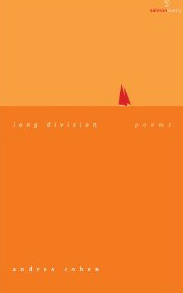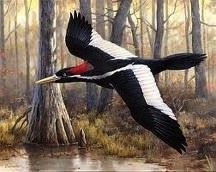“A needle must feel
deeply needled, ill-
suited to its skin,
to leave its arrow-
straight ways, to stray
into a haystack…”—from “In a Haystack.”
I can honestly  say that I have never sat down before with a new book of poetry and found myself so engrossed that I have read the entire book in one leisurely sitting. Sure, as a student, I may have come close to imitating that experience during an all-nighter with a paper due the next morning, but then I didn’t experience the poems’ pleasure, and probably didn’t read the whole collection, preferring instead to pan for nuggets I could quote for credit. This collection by Andrea Cohen is different—special—so fresh, so accessible, and so exciting in its imagery, irony, humor, and honest sentiment, that time became irrelevant for me when I was reading. In the course of three hours, I was laughing, smiling in knowing agreement at new insights, loving the “a-ha” moments when I finally “got” what the poet’s image was all about, weeping at the unvarnished treatment of death in some poems which evoked sorrows of my own, and loving the intimacy of sharing so many events with a woman I had never met but now know better than some of my “closest” friends.
say that I have never sat down before with a new book of poetry and found myself so engrossed that I have read the entire book in one leisurely sitting. Sure, as a student, I may have come close to imitating that experience during an all-nighter with a paper due the next morning, but then I didn’t experience the poems’ pleasure, and probably didn’t read the whole collection, preferring instead to pan for nuggets I could quote for credit. This collection by Andrea Cohen is different—special—so fresh, so accessible, and so exciting in its imagery, irony, humor, and honest sentiment, that time became irrelevant for me when I was reading. In the course of three hours, I was laughing, smiling in knowing agreement at new insights, loving the “a-ha” moments when I finally “got” what the poet’s image was all about, weeping at the unvarnished treatment of death in some poems which evoked sorrows of my own, and loving the intimacy of sharing so many events with a woman I had never met but now know better than some of my “closest” friends.
 I have reread most of these poems now, and have found ever more subtleties to admire in each line. I have read them to my (former English major) husband while he has been driving the car (though I had to be reminded to speak more slowly so he could savor the images), and I have recommended them to several friends who also love wonderful writing. Cohen’s writing is absolutely clear (no fuzzy images and contorted syntax) and clean in its structure—the poems are carefully composed, not the result of unstructured free writing in which a poet so often celebrates himself and the primacy of his every utterance. These poems often consist of stanzas of equal lengths, with a single line at the end to secure the final idea and give it emphasis. “Current Events,” for example, consists of three-line stanzas, each line having three stresses, as the poet lists perfect moments in time—Asian pears at peak, starlings stringing their nests with hairnet and Christmas lights, a paperboy happy at the weight of his papers, following them with a single line, ordering the reader to “praise, and praise, and praise.”
I have reread most of these poems now, and have found ever more subtleties to admire in each line. I have read them to my (former English major) husband while he has been driving the car (though I had to be reminded to speak more slowly so he could savor the images), and I have recommended them to several friends who also love wonderful writing. Cohen’s writing is absolutely clear (no fuzzy images and contorted syntax) and clean in its structure—the poems are carefully composed, not the result of unstructured free writing in which a poet so often celebrates himself and the primacy of his every utterance. These poems often consist of stanzas of equal lengths, with a single line at the end to secure the final idea and give it emphasis. “Current Events,” for example, consists of three-line stanzas, each line having three stresses, as the poet lists perfect moments in time—Asian pears at peak, starlings stringing their nests with hairnet and Christmas lights, a paperboy happy at the weight of his papers, following them with a single line, ordering the reader to “praise, and praise, and praise.”
 Andrea Cohen is a communicator, a woman who speaks from the heart without treacle-y sentiment, a poet so skilled in all the arts of poesy that she can match her metrics to the cadences of everyday speech. In the quotation from “In a Haystack,” at the top of this review, for example, six two-stress lines are read as one easily understood sentence, without all the pauses and heavy beats of most nineteenth century poetry and without the blankness of much twentieth century verse. Many poems offer unique points of view. A poem written from the point of view of a needle (with the literal image of a needle “point” and “eye-view” perhaps intended), is amusing in its own right, and in this case the needle is on an adventure, imagining its “one good eye [filled] with the filament of pasture,” or itself as “pillow to the weary,” or as “supper to the bell-necklaced goats.” Here Cohen offers a cheerful and unusual comment on imagination, adventure, and daring to be different.
Andrea Cohen is a communicator, a woman who speaks from the heart without treacle-y sentiment, a poet so skilled in all the arts of poesy that she can match her metrics to the cadences of everyday speech. In the quotation from “In a Haystack,” at the top of this review, for example, six two-stress lines are read as one easily understood sentence, without all the pauses and heavy beats of most nineteenth century poetry and without the blankness of much twentieth century verse. Many poems offer unique points of view. A poem written from the point of view of a needle (with the literal image of a needle “point” and “eye-view” perhaps intended), is amusing in its own right, and in this case the needle is on an adventure, imagining its “one good eye [filled] with the filament of pasture,” or itself as “pillow to the weary,” or as “supper to the bell-necklaced goats.” Here Cohen offers a cheerful and unusual comment on imagination, adventure, and daring to be different.

“To an Ant Fallen in the Salt Shaker” is a humorous reminder to an ant, who may have been looking for sugar, that the sweetness [of life] requires hard work. “The lair of sugar is heavy-lidded,” and “if the way in to/ sweetness seems direct/ and seamless, beware…” “The Beauty of Youth” is a paean to the imagination of childhood. “Flying Fish” considers the predicament of a fish who feels that he is neither fish nor fowl. “The Song of the Ivory-Billed Woodpecker” is a powerful reminder that this bird is now extinct and that his death as the last of the species occurred because of the species’ refusal to “adapt to cruelty…”
Many poems recall Cohen’s childhood, her family, and the important moments in her early life in the South—saying thank you to the trash pick-up man, the experience of being bitten by a snake and needing an “anti-boat,” the “ideal day” her father shared with her and her siblings, and digging to China when her parents were away in China. But many other poems are from adult life, a heart-stopping poem on the death of her brother, the senility of her grandfather, the killing of the animals in the zoo in Palestine, and issues of love: while loving and losing is hard, “to have loved and never/ had, to be chained/ to the imagined, its expense/ account without bounds,” that’s harder still. Andrea Cohen is a poet whose clarity of vision and imagery combines with the clean structure of her language and verse to create poems which communicate on all levels, some of them humorous, some of them laden with sadness, and all of them unique. (On my list of Favorites for 2009).
Notes: Andrea Cohen’s photo appears on http://www.salmonpoetry.com/details.php?ID=18&a=18
The flying fish is seen on http://blog.naver.com/
The ivory-billed woodpecker, thought to be extinct, was supposedly sighted in the Arkansas marshes in 2006. Further investigation, sightings, and photographs, however, have not proven the continued existence of this magnificent bird. http://www.ivory-bill-woodpecker.com/
Ms. Cohen has received several fellowships from the MacDowell Colony in Peterborough, N.H.
